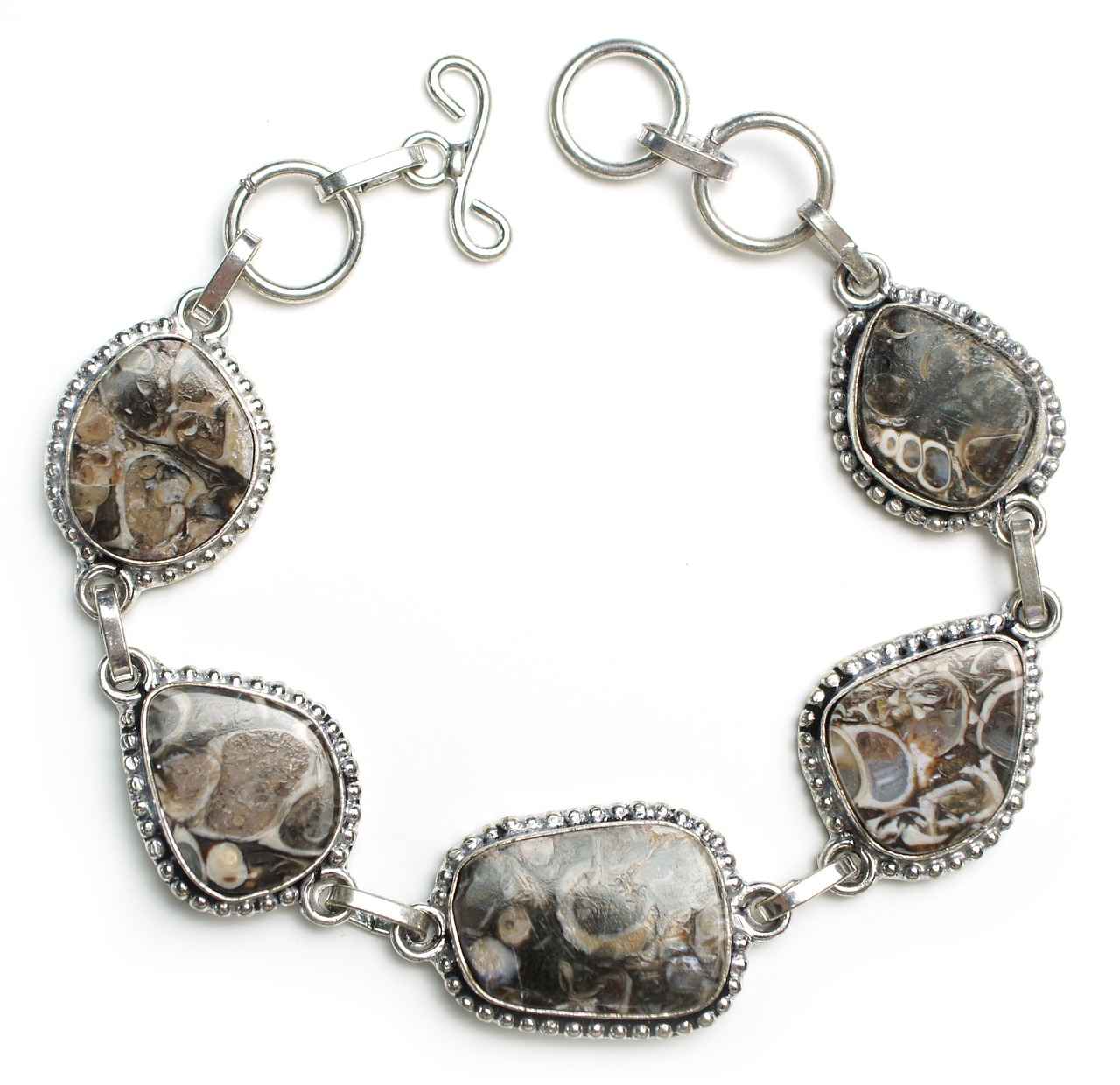This article explores the significance of red string bracelets across various cultures, examining their historical roots, meanings, and the beliefs associated with them. Red string bracelets are not just a fashion statement; they are steeped in cultural significance and spiritual symbolism. These simple yet profound accessories are worn by many individuals around the world, often representing protection, luck, and a connection to the divine.
What Is the Cultural Significance of Red String Bracelets?
Red string bracelets hold deep cultural meanings in many societies. In numerous traditions, they symbolize protection and good fortune. For instance, in Jewish Kabbalah, the red string is believed to ward off the evil eye, while in Hindu culture, it represents blessings and the bond between individuals. These bracelets often serve as a reminder of one’s spiritual journey or personal intentions.
How Do Different Cultures Interpret the Color Red?
The color red carries various meanings across cultures. It is often associated with love, passion, and vitality. In many Asian cultures, red is a color of happiness and good luck, which enhances the symbolism of red string bracelets. This multifaceted interpretation of red contributes to the rich tapestry of beliefs surrounding these bracelets, making them more than just decorative items.
What Are the Beliefs Surrounding Red String Bracelets in Kabbalah?
In Kabbalistic tradition, red string bracelets are worn to protect against negative energies and the evil eye. Followers often tie the string around their wrist while reciting prayers or blessings, reinforcing their intention for spiritual protection and good fortune. This practice has transcended cultural boundaries, gaining popularity among individuals seeking spiritual solace.
How Are Red String Bracelets Used in Hinduism?
In Hindu culture, red string bracelets, known as moli or kalava, are tied during rituals to symbolize blessings and protection. Often seen during auspicious ceremonies, these bracelets represent the sacred bond between individuals, serving as a reminder of their commitments and spiritual connections. The red color signifies purity and auspiciousness, enhancing the bracelet’s significance.
What Role Do Red String Bracelets Play in Buddhism?
Buddhists wear red string bracelets as a symbol of their spiritual journey. These bracelets serve as a reminder of their mindfulness practices, protection, and a connection to their community. The act of wearing such a bracelet can be a personal ritual, encouraging wearers to reflect on their spiritual growth and commitment to their beliefs.
Are There Any Scientific Studies on the Efficacy of Wearing Red String Bracelets?
Research on the psychological effects of wearing talismans, including red string bracelets, suggests that they may boost confidence and provide a sense of security to wearers. The belief in the bracelet’s protective qualities can foster a positive mindset, enhancing the wearer’s overall well-being.
How Do Fashion Trends Influence the Popularity of Red String Bracelets?
The rise of fashion trends has popularized red string bracelets beyond their cultural origins. Today, they are often seen as fashionable accessories, appealing to a broader audience while still retaining their traditional meanings. Many designers incorporate these bracelets into their collections, blending cultural significance with contemporary style.
What Are Common Materials Used in Making Red String Bracelets?
| Material | Description |
|---|---|
| Cotton | Soft and comfortable, often used for traditional bracelets. |
| Silk | Luxurious and vibrant, adding elegance to the bracelet. |
| Nylon | Durable and versatile, suitable for everyday wear. |
How Can You Create Your Own Red String Bracelet?
Creating a red string bracelet can be a personal and meaningful craft. Gather materials such as red string, beads, or charms that resonate with your intentions. As you weave the bracelet, focus on your desires and beliefs, infusing the piece with your personal energy.
What Should You Consider When Wearing a Red String Bracelet?
When wearing a red string bracelet, it’s important to understand its significance and respect its cultural origins. Choose a bracelet that resonates personally with your beliefs, and be mindful of the intentions behind wearing it. Whether for protection, luck, or spiritual connection, these bracelets can serve as powerful reminders of one’s values and aspirations.

What Is the Cultural Significance of Red String Bracelets?
Red string bracelets are not just a fashion statement; they are deeply woven into the cultural fabric of many societies around the world. These simple yet profound accessories carry significant meanings, often associated with protection, good fortune, and a deep connection to spirituality. Understanding the cultural significance of red string bracelets can provide valuable insights into the traditions and beliefs of various communities.
In numerous cultures, red string bracelets serve as powerful symbols of protection and connection. For instance, in Kabbalistic tradition, these bracelets are believed to shield the wearer from the evil eye and attract positive energy. This belief has transcended generations, making the red string a cherished item among many Jewish communities.
Similarly, in Hinduism, red string bracelets, known as moli or kalava, are tied during sacred rituals. They symbolize blessings and protection, fostering a bond between individuals. The act of tying the bracelet is often accompanied by prayers, enhancing its spiritual significance.
The color red itself is rich in meaning across different cultures. In many Asian cultures, red represents happiness, prosperity, and good luck. This positive association contributes to the popularity of red string bracelets, as they are often worn during celebrations and significant life events. In contrast, in some African cultures, red symbolizes courage and strength, further amplifying the bracelet’s significance as a protective talisman.
In Kabbalah, the red string bracelet is more than just a decorative item; it is a spiritual tool. Worn on the left wrist, which is believed to be the receiving side of the body, the bracelet is thought to absorb negative energies and protect the wearer from harm. This belief has made it a popular accessory among those seeking spiritual guidance and protection.
In Hindu culture, the red string bracelet plays a crucial role in various rituals. During ceremonies, priests tie the bracelet around the wrist of devotees, which is believed to invoke divine blessings and protection. This ritual emphasizes the importance of community and familial bonds, as the act of tying the bracelet often involves loved ones.
Buddhists also embrace red string bracelets as symbols of their spiritual journey. These bracelets serve as reminders of mindfulness and the interconnectedness of all beings. Wearing a red string bracelet can be a way for practitioners to express their commitment to their spiritual path and community.
Research into the psychological effects of wearing talismans like red string bracelets suggests that they can enhance the wearer’s confidence and provide a sense of security. The belief in the bracelet’s protective qualities can lead to a placebo effect, where wearers feel empowered and less anxious.
In recent years, fashion trends have propelled the popularity of red string bracelets beyond their cultural origins. Many celebrities and influencers wear these bracelets as fashionable accessories, yet they often retain their traditional meanings. This blending of fashion and culture has sparked interest in the deeper significance of these bracelets among younger generations.
Red string bracelets are commonly crafted from materials such as cotton, silk, or nylon. Some variations include decorative beads or charms that enhance their aesthetic appeal while also adding layers of symbolism. The choice of material can reflect personal beliefs and preferences.
Creating a red string bracelet can be a meaningful and personal endeavor. By choosing materials that resonate with you and incorporating your intentions, you can craft a bracelet that embodies your beliefs and aspirations. This DIY approach adds a layer of significance to the bracelet, transforming it into a unique talisman.
When wearing a red string bracelet, it’s essential to respect its cultural origins and understand its significance. Choose a bracelet that resonates with your personal beliefs, and consider the intention behind wearing it. This mindful approach enhances the bracelet’s meaning, fostering a deeper connection to its cultural roots.

How Do Different Cultures Interpret the Color Red?
The color red is a powerful hue, rich with meaning and significance across various cultures. Its interpretations can vary dramatically, reflecting the unique values, beliefs, and traditions of different societies. This exploration delves into how the color red is perceived globally, particularly in relation to the symbolism of red string bracelets.
- Western Cultures: In many Western cultures, red is primarily associated with love and passion. It is often used in romantic contexts, such as Valentine’s Day, where red roses and hearts dominate the imagery.
- Eastern Cultures: In countries like China, red represents happiness and prosperity. It is a common color for weddings and celebrations, symbolizing good fortune and joy.
- Indian Culture: In India, red is a symbol of marriage and fertility. The color is often worn by brides on their wedding day, signifying auspiciousness and prosperity.
- Middle Eastern Cultures: In some Middle Eastern countries, red can signify courage and strength, often associated with the blood of martyrs and the fight for freedom.
The color red in red string bracelets carries these cultural meanings, enhancing their significance. In many traditions, wearing a red string bracelet serves as a reminder of the values associated with the color. For instance, in Kabbalah, the red string is believed to offer protection from the evil eye, while in Hinduism, it symbolizes blessings and the bond between individuals.
Psychologically, red is known to evoke strong emotions. It can stimulate feelings of excitement and energy, making it a popular choice in branding and marketing. The emotional impact of red can also influence how individuals perceive red string bracelets, often viewing them as not just decorative items but as powerful talismans imbued with meaning.
In various spiritual practices, red is often used to signify protection and healing. For example, in Buddhism, red string bracelets are worn as a reminder of one’s spiritual journey, symbolizing mindfulness and connection to one’s community. The color’s vibrancy serves as a visual cue for wearers to remain focused on their spiritual path.
In contemporary society, the color red has transcended its traditional meanings, becoming a fashionable choice in accessories, including red string bracelets. This shift has led to a broader interpretation of red, where it embodies individuality and style, while still retaining its cultural significance. The blend of fashion and tradition allows wearers to express personal beliefs while adhering to cultural practices.
When considering wearing a red string bracelet, it is crucial to understand its cultural origins and the meanings associated with the color red. Respecting these traditions enhances the bracelet’s significance and allows wearers to connect with their personal beliefs. Whether for protection, luck, or as a fashion statement, the red string bracelet carries a rich tapestry of meanings that resonate with many.

What Are the Beliefs Surrounding Red String Bracelets in Kabbalah?
Red string bracelets have captured the imagination of many cultures, particularly in the Kabbalistic tradition. These simple yet profound accessories are often seen as a powerful tool for spiritual protection and good fortune. But what exactly do these beliefs entail?
In Kabbalistic tradition, the red string bracelet is imbued with significant spiritual meaning. It is generally worn on the left wrist, which is considered the receiving side of the body. This positioning is believed to allow the wearer to absorb positive energy while warding off negative influences.
The primary purpose of the red string is to protect against the evil eye, a malevolent glare that is said to bring misfortune or harm. This belief is rooted in the idea that envy can manifest as a harmful energy directed toward individuals, and the red string acts as a shield against such negativity.
Moreover, the red string is often associated with the biblical figure Rachel, who is revered in Jewish tradition. According to Kabbalistic teachings, tying the red string around the wrist while reciting specific prayers can enhance its protective qualities. This connection to Rachel emphasizes the bracelet’s role in fostering a sense of security and spiritual connection.
Followers often choose to wear the bracelet as a reminder of their spiritual journey and connection to the divine. It serves as a tangible symbol of their faith and the protective forces that surround them. In this way, the red string becomes more than just an accessory; it transforms into a powerful talisman that embodies one’s beliefs and intentions.
When choosing a red string bracelet, many individuals consider factors such as material, size, and even the presence of additional charms or symbols. Some may opt for simple cotton strings, while others may prefer silk or nylon for durability. The choice of material can reflect personal taste as well as the bracelet’s intended purpose.
Additionally, the act of tying the bracelet can be a significant ritual. Many people prefer to have a loved one tie the bracelet on their wrist, as this act is believed to enhance its protective qualities. This communal aspect of the ritual underscores the importance of relationships and support within Kabbalistic beliefs.
Yes, there are several rituals associated with the red string bracelet in Kabbalistic practice. One common ritual involves reciting specific prayers or blessings while tying the bracelet. This practice is believed to infuse the bracelet with positive energy and intentions, enhancing its protective capabilities.
Some individuals also choose to incorporate other spiritual elements, such as prayers for health, prosperity, or happiness, during the tying process. This personalized approach allows wearers to create a unique connection with their bracelet, aligning it with their specific needs and desires.
The influence of red string bracelets extends beyond mere symbolism; they can serve as daily reminders of one’s beliefs and intentions. Many wearers report feeling a sense of calmness and confidence while wearing the bracelet, as it acts as a protective shield against negativity. This psychological aspect can enhance overall well-being and foster a positive mindset.
In conclusion, red string bracelets in Kabbalah are rich in meaning and tradition. They serve as a protective talisman, a reminder of spiritual beliefs, and a symbol of community and support. Whether worn for protection or as a personal statement of faith, these bracelets continue to hold significant value in the lives of many individuals.

How Are Red String Bracelets Used in Hinduism?
In Hinduism, red string bracelets hold a profound significance that transcends mere ornamentation. Known as moli or kalava, these bracelets are traditionally made from red cotton or silk threads and are often tied around the wrist during religious ceremonies and rituals. They are not just accessories; they embody deep spiritual meanings and serve as a symbol of protection, blessings, and the sacred bond between individuals.
The tying of red string bracelets typically occurs during significant religious events, such as pujas (prayer ceremonies) and yagnas (fire rituals). During these rituals, a priest often ties the bracelet around the wrist of devotees, invoking blessings from deities. This act is believed to bring good fortune and safeguard the wearer from negative energies.
In Hindu culture, the color red is associated with auspiciousness, love, and passion. The red string bracelet symbolizes the connection between the wearer and divine energies. It is often seen as a protective talisman that wards off evil spirits and misfortunes. The bracelet also represents the bond of family and friendship, serving as a reminder of the love and support shared among individuals.
Red string bracelets are especially prominent during various Hindu festivals. For instance, during Raksha Bandhan, sisters tie a red thread around their brothers’ wrists, symbolizing their love and the brothers’ promise to protect them. In this context, the red string serves as a reminder of familial bonds and responsibilities.
Many Hindus believe that wearing a red string bracelet can enhance their spiritual journey. It is thought to bring peace, prosperity, and overall well-being. Some individuals also personalize their bracelets by adding sacred symbols or beads that hold personal significance, making the bracelet a unique representation of their faith and aspirations.
Wearing a red string bracelet can be a deeply personal experience, connecting individuals to their cultural and spiritual heritage. It serves as a daily reminder of one’s beliefs and values, fostering a sense of community and belonging. Many people choose to wear them as a form of spiritual expression, reinforcing their commitment to their faith.
Indeed, variations of red string bracelets exist across different regions of India. While the basic concept remains the same, the materials, designs, and rituals associated with these bracelets can vary. In some regions, for example, the bracelets may incorporate local motifs or additional colors that hold specific meanings, reflecting the diverse cultural tapestry of Hinduism.
- Understand its significance: Recognize the cultural and spiritual meanings associated with the bracelet.
- Respect its origins: Acknowledge the traditions and rituals that give the bracelet its value.
- Choose personally: Select a bracelet that resonates with your beliefs and intentions.
In conclusion, red string bracelets in Hinduism are much more than decorative items. They encapsulate a rich tapestry of meanings and beliefs that connect individuals to their culture, spirituality, and loved ones. Whether worn during rituals or as a personal talisman, these bracelets serve as powerful symbols of protection and connection.
moli
Red string bracelets, often referred to as in Hindu culture, are not just accessories; they are rich in cultural significance and symbolism. This article delves into the profound meanings behind these bracelets, their historical roots, and the beliefs that surround them.
The holds deep cultural meanings in various societies, particularly in Hinduism. It is often tied during rituals and ceremonies to symbolize blessings, protection, and the bond between individuals. The act of tying the moli is a sacred ritual that signifies the well-wishing of the person tying it, often a loved one or a spiritual leader.
The color red is universally associated with many powerful emotions and concepts. In Hinduism, red symbolizes love, passion, and vitality. This strong association enhances the symbolism of the moli, making it a potent emblem of positive energy and spiritual connection.
In Hindu culture, the moli is often tied around the wrist during ceremonies such as pujas or weddings. It is believed to protect the wearer from negative energies and misfortunes, acting as a shield against the evil eye. The red thread is typically made from cotton or silk, emphasizing its natural and spiritual roots.
Beyond rituals, many individuals wear the moli in their daily lives as a reminder of their spiritual journey and personal beliefs. It serves as a symbol of faith and protection, often worn during important life events or transitions.
While the spiritual significance of the moli is well-documented, scientific studies have explored the psychological effects of wearing talismans. Research suggests that wearing a moli can boost confidence and provide a sense of security, reinforcing the idea that belief in its protective qualities can have tangible benefits.
The rise of fashion trends has led to a broader acceptance of the moli as a fashionable accessory. While it retains its traditional meanings, many people wear it purely for its aesthetic appeal, often pairing it with other jewelry. This blend of fashion and tradition has made the moli increasingly popular among diverse groups.
Typically, moli bracelets are crafted from materials like cotton, silk, or nylon. Some variations include decorative beads or charms that enhance their aesthetic appeal while maintaining their symbolic value. The choice of material can also reflect personal beliefs and preferences.
Creating a moli can be a deeply personal and meaningful experience. To craft your own, gather materials like colored threads, beads, and charms. As you create, infuse your intentions and beliefs into the design, making it a unique representation of your spiritual journey.
When wearing a moli, it’s essential to understand its significance and respect its cultural origins. Choose a moli that resonates with your personal beliefs and intentions, ensuring that it reflects your values and aspirations.
or
Red string bracelets have captivated the attention of many cultures around the world, each attributing unique meanings and significance to these simple yet powerful accessories. This article delves into the historical roots, meanings, and beliefs associated with red string bracelets, exploring their cultural relevance.
In numerous societies, red string bracelets symbolize protection, good luck, and a connection to spirituality. These bracelets often serve as a reminder of one’s beliefs and cultural heritage, fostering a sense of belonging.
The color red conveys various meanings across cultures. It is often associated with love, passion, and vitality. In the context of red string bracelets, this vibrant hue enhances their symbolism, making them powerful talismans.
Within the Kabbalistic tradition, red string bracelets are believed to ward off the evil eye and attract good fortune. Followers often wear them for spiritual protection, reinforcing their connection to divine energies.
In Hindu culture, red string bracelets, known as moli or kalava, are tied during rituals to symbolize blessings, protection, and the bond between individuals. They play a significant role in various ceremonies, reinforcing social and familial ties.
Buddhists often wear red string bracelets as a reminder of their spiritual journey. These bracelets symbolize mindfulness, protection, and a connection to their community, serving as a daily reminder of their values and beliefs.
Research on the psychological effects of wearing talismans like red string bracelets suggests they may boost confidence and provide a sense of security to wearers. This phenomenon highlights the intersection of culture and psychology, emphasizing the importance of belief in the efficacy of such items.
The rise of fashion trends has popularized red string bracelets beyond their cultural contexts. Today, they are seen as fashionable accessories while still retaining their traditional meanings, appealing to a broader audience.
Typically, red string bracelets are made from materials such as cotton, silk, or nylon. Variations may include beads or charms that enhance their aesthetic and symbolic value, allowing for personal expression.
Creating a red string bracelet can be a personal and meaningful craft. Individuals can infuse their own intentions and beliefs into the design, making each bracelet unique and special.
When wearing a red string bracelet, it is essential to understand its significance and respect its cultural origins. Choosing a bracelet that resonates personally with your beliefs can enhance its value and meaning in your life.
kalava,
Kalava, also known as the red string bracelet, holds significant cultural and spiritual meanings across various traditions, particularly in Hinduism. This article delves into the origins, meanings, and practices surrounding kalava, providing insights into its importance in spiritual rituals and daily life.
Kalava is a sacred thread, often made of red cotton, that symbolizes protection, blessings, and a connection to the divine. In many Hindu rituals, it is tied around the wrist during ceremonies to invoke the blessings of deities and to signify a bond between individuals.
During rituals, the priest ties the kalava on the wrist of individuals, often during pujas or sacred ceremonies. This act is believed to bring good fortune and safeguard the wearer from negative energies. The color red represents life and energy, making it a powerful symbol in these contexts.
Kalava is not just a decorative item; it carries deep spiritual significance. Many believe that wearing it helps to ward off evil spirits and brings peace and prosperity. It serves as a constant reminder of the spiritual journey and the connection to one’s faith.
Yes, variations of kalava exist across different regions in India. In some areas, it may be adorned with small beads or charms, while in others, it remains a simple red thread. Regardless of the style, the underlying significance remains the same: a symbol of protection and spirituality.
Similar practices can be found in other cultures, where colored threads or bracelets are used to symbolize protection and connection to the divine. For instance, the red string bracelet in Kabbalah shares a similar purpose of warding off the evil eye, indicating a universal theme of seeking spiritual safety.
Kalava is primarily made from red cotton, but it can also be crafted from silk or nylon. Some variations include decorative elements like beads, which enhance their aesthetic appeal while retaining their spiritual significance. The choice of material often reflects personal beliefs and cultural traditions.
Creating a kalava can be a personal and meaningful experience. To make your own, gather red thread or string, and optionally, beads or charms that resonate with your intentions. As you tie the bracelet, infuse it with your personal wishes or prayers, making it a unique symbol of your spiritual journey.
When wearing kalava, it’s essential to understand its cultural significance and respect its origins. Choose a kalava that resonates with your beliefs, and consider the intention behind wearing it. Many wear it as a reminder of their faith and the protection it symbolizes.
In contemporary society, kalava has transcended its traditional roots, becoming a popular fashion accessory. While many still wear it for its spiritual meanings, others appreciate it for its aesthetic value. This evolution highlights the adaptability of cultural symbols in modern contexts, bridging the gap between tradition and contemporary style.
are tied during rituals to symbolize blessings, protection, and the bond between individuals.
Red string bracelets hold a significant place in various cultures, often tied during rituals to symbolize blessings, protection, and the bond between individuals. This article will delve into the cultural significance of these bracelets, exploring their historical roots and the beliefs associated with them.
Across many societies, red string bracelets are more than mere accessories; they are imbued with deep cultural meanings. They often symbolize protection against negative energies, good luck, and a connection to spirituality. The act of wearing or tying these bracelets can be seen as a ritualistic gesture that reinforces community and individual bonds.
The color red is a powerful symbol in many cultures, often associated with love, passion, and vitality. In the context of red string bracelets, the color enhances their significance, making them a potent emblem of emotional and spiritual connections.
In Kabbalistic tradition, red string bracelets are believed to ward off the evil eye and attract good fortune. Followers often wear them for spiritual protection, tying the bracelet on the left wrist, which is considered the receiving side of the body.
In Hindu culture, red string bracelets, known as moli or kalava, are tied during various rituals. They symbolize blessings, protection, and the bond between individuals, particularly during significant life events such as weddings or religious ceremonies.
Buddhists often wear red string bracelets as a reminder of their spiritual journey. These bracelets symbolize mindfulness, protection, and a connection to their community, serving as a daily reminder of their commitments and beliefs.
Research on the psychological effects of wearing talismans, including red string bracelets, suggests they may boost confidence and provide a sense of security to wearers. The act of wearing such symbols can create a placebo effect, enhancing the wearer’s overall well-being.
The rise of fashion trends has popularized red string bracelets beyond their cultural contexts. While they are now often seen as fashionable accessories, many still retain their traditional meanings, bridging the gap between fashion and culture.
Red string bracelets are typically made from materials such as cotton, silk, or nylon. Many variations include beads or charms that enhance their aesthetic appeal and symbolic value, allowing for personal expression.
Creating a red string bracelet can be a personal and meaningful craft. Individuals can infuse their own intentions and beliefs into the design, making the bracelet a unique representation of their values and aspirations.
When wearing a red string bracelet, it’s important to understand its significance and respect its cultural origins. Choose a bracelet that resonates personally with your beliefs, and consider the intentions behind wearing it to enhance its meaning.
What Role Do Red String Bracelets Play in Buddhism?
Red string bracelets are not merely fashion accessories; they carry profound significance in various cultures, particularly in Buddhism. In this article, we will explore the role of red string bracelets in Buddhism, examining their meaning, symbolism, and the practices surrounding them.
Buddhists often wear red string bracelets as a reminder of their spiritual journey. These bracelets serve as a powerful symbol of mindfulness, protection, and a deep connection to the Buddhist community. The act of wearing a red string bracelet is a personal commitment to the teachings of the Buddha and a reminder of one’s path towards enlightenment.
The color red itself is significant in Buddhist culture, often associated with good fortune and protection. Many believe that the red string acts as a barrier against negative energies and influences, helping the wearer to maintain a positive mindset. This protective quality is why many practitioners choose to wear them during meditation or spiritual practices.
In addition to serving as a personal talisman, red string bracelets also symbolize the interconnectedness of all beings. When worn, they remind individuals of their place within the larger Buddhist community, fostering a sense of belonging and collective support. This communal aspect is particularly important in Buddhist teachings, which emphasize compassion and unity among practitioners.
- Mindfulness: The bracelet serves as a reminder to stay present and aware of one’s thoughts and actions.
- Protection: Many believe that the red string protects against misfortunes and negative energies.
- Community Connection: Wearing the bracelet fosters a sense of belonging to the Buddhist community.
Furthermore, the process of tying the bracelet often involves a ritual. Monks or spiritual leaders may bless the string before it is tied around the wrist, imbuing it with spiritual energy. This ritualistic element enhances the bracelet’s significance, turning it into more than just a piece of string but a sacred object that carries the wearer’s intentions and prayers.
Many Buddhists believe that the red string should be worn until it naturally falls off, symbolizing the completion of a spiritual journey or the fulfillment of a particular intention. This belief highlights the transient nature of life, a core tenet of Buddhism that emphasizes impermanence and the importance of living in the moment.
Moreover, red string bracelets have gained popularity beyond traditional Buddhist contexts. They are often seen in modern fashion, appealing to a broader audience while still retaining their spiritual significance. This fusion of tradition and contemporary style has led to a resurgence in interest, prompting many to explore the deeper meanings behind these bracelets.
Ultimately, red string bracelets in Buddhism serve as powerful symbols of spiritual commitment, protection, and community connection. They remind wearers of their spiritual journey, encouraging mindfulness and a deeper understanding of their place within the universe. As more people embrace these bracelets, they continue to inspire a sense of connection and purpose, transcending cultural boundaries and fostering a global appreciation for their rich symbolism.
Are There Any Scientific Studies on the Efficacy of Wearing Red String Bracelets?
The practice of wearing red string bracelets spans across various cultures, each attributing unique meanings and significance to this simple yet powerful accessory. Among the many beliefs surrounding these bracelets, a growing body of research suggests that they may also have psychological benefits for wearers. This article delves into the scientific studies that explore the efficacy of wearing red string bracelets, particularly their impact on confidence and the sense of security they provide.
Research on talismans, including red string bracelets, indicates that they can serve as a source of psychological comfort. A study published in the Journal of Psychological Science found that individuals who wear talismans often report an increase in self-confidence. This boost is attributed to the belief that these items hold protective qualities, which can reduce anxiety and enhance a person’s overall sense of well-being.
Wearing a red string bracelet can act as a reminder of personal strength and resilience. When individuals perceive their bracelet as a protective charm, they may feel more empowered to face challenges. This phenomenon aligns with the principles of cognitive behavioral therapy, which emphasizes the importance of positive thinking in influencing behavior and emotional responses.
The psychological effects of wearing red string bracelets extend beyond just confidence. Many wearers report feeling a profound sense of security when donning these bracelets. This feeling can stem from the cultural and spiritual beliefs associated with the bracelet, which often symbolize protection from negative energies or influences. A survey conducted among wearers of red string bracelets revealed that a significant percentage felt a greater sense of safety and comfort in their daily lives.
The psychological benefits of wearing red string bracelets can be attributed to several mechanisms:
- Symbolic Meaning: The belief in the bracelet’s protective qualities can create a placebo effect, where the mere act of wearing it invokes feelings of safety.
- Social Connection: Wearing a red string bracelet can foster a sense of belonging to a community that shares similar beliefs, enhancing emotional support.
- Ritualistic Behavior: Engaging in the ritual of tying or wearing the bracelet can reinforce a positive mindset and serve as a daily affirmation of protection and strength.
While the psychological benefits of wearing red string bracelets are promising, it is important to note that most studies rely on self-reported data, which can be subjective. Further research, particularly in controlled environments, is necessary to validate these findings and understand the broader implications of wearing such talismans.
For those interested in exploring the psychological benefits of red string bracelets, it is essential to approach them with an open mind. Engaging in the cultural practices associated with the bracelet, such as understanding its origins and meanings, can enhance its significance. Additionally, individuals can personalize their bracelets with charms or symbols that resonate with their personal beliefs, further amplifying the psychological benefits.
In conclusion, while the scientific studies on the efficacy of wearing red string bracelets are still developing, the evidence suggests that these talismans may indeed boost confidence and provide a sense of security to wearers. As more research emerges, the understanding of how cultural artifacts like red string bracelets influence psychological well-being will continue to expand.
How Do Fashion Trends Influence the Popularity of Red String Bracelets?
The world of fashion is ever-evolving, with trends that come and go, but some items manage to transcend mere style and become symbols of deeper significance. One such item is the red string bracelet, which has gained immense popularity in recent years. This article delves into how fashion trends have influenced the widespread acceptance of red string bracelets, while still honoring their traditional meanings.
Red string bracelets are often made from a simple strand of red thread, but their meanings vary across cultures. Traditionally, they are tied around the wrist as a symbol of protection and good fortune. In various cultures, such as Hinduism and Kabbalah, these bracelets are believed to ward off negative energies and connect the wearer to spiritual beliefs.
In the age of social media and celebrity culture, fashion trends can spread rapidly. Red string bracelets have been spotted on numerous celebrities and influencers, making them a fashionable accessory that appeals to a broader audience. The allure of these bracelets lies not only in their aesthetic appeal but also in their rich cultural heritage.
- Versatility: They can be paired with various outfits, from casual wear to formal attire.
- Personalization: Many people choose to customize their bracelets with beads or charms, adding a personal touch.
- Symbolism: Wearing a red string bracelet can convey a sense of connection to cultural roots while also making a style statement.
While the rise of fashion trends has made red string bracelets popular, they still retain their traditional meanings. Many wearers appreciate the blend of style and spirituality, often viewing the bracelet as a reminder of their goals or a protective talisman. This duality enhances their appeal, allowing individuals to express their personal beliefs while staying trendy.
Styling red string bracelets can be an enjoyable experience. Here are some tips:
- Layer them with other bracelets for a bohemian look.
- Choose different materials to create contrast, such as pairing a silk red string with metal or leather.
- Mix and match colors and styles to reflect your personality.
As red string bracelets gain popularity, it is vital to recognize their cultural significance. While wearing them as fashion statements, individuals should remain respectful of the traditions and beliefs associated with these items. Understanding the origins can foster appreciation rather than appropriation, ensuring that the cultural meanings are honored.
For those interested in purchasing red string bracelets, it is essential to seek out authentic sources. Many artisans create traditional bracelets that honor the cultural significance, while others may offer modern interpretations. Look for local markets, online artisan shops, or ethical brands that prioritize cultural integrity.
In conclusion, the rise of fashion trends has undoubtedly popularized red string bracelets, transforming them into a fashionable accessory. However, their traditional meanings remain intact, providing wearers with a unique blend of style and spirituality. As you explore the world of red string bracelets, consider their cultural significance and the personal stories they can tell.
What Are Common Materials Used in Making Red String Bracelets?
Red string bracelets are not only visually appealing but also carry a wealth of cultural significance. These bracelets are typically crafted from a variety of materials, each chosen for its unique properties and meanings. Understanding the common materials used in making red string bracelets can enhance appreciation for their cultural importance and aesthetic value.
Red string bracelets are primarily made from cotton, silk, or nylon. Each material brings its own characteristics to the bracelet, impacting both its durability and symbolism.
- Cotton: This is one of the most common materials used for red string bracelets. Cotton is known for its softness and flexibility, making it comfortable to wear. Additionally, it is a natural fiber, which resonates with many who prefer eco-friendly options.
- Silk: Silk adds a touch of luxury to red string bracelets. The smooth texture and sheen of silk make these bracelets visually striking. In many cultures, silk is associated with wealth and prosperity, enhancing the bracelet’s symbolic value.
- Nylon: For those seeking durability, nylon is an excellent choice. This synthetic material is resistant to wear and tear, making it suitable for everyday use. Nylon red string bracelets are often favored for their longevity.
In addition to these primary materials, many red string bracelets incorporate beads or charms to enhance their aesthetic appeal and deepen their symbolic meanings. These additions can vary widely based on cultural beliefs and personal preferences:
- Beads: Often made from materials such as wood, glass, or semi-precious stones, beads can represent different intentions or blessings. For example, a bracelet with turquoise beads might symbolize protection and healing.
- Charms: Charms can add a personal touch to red string bracelets. They can represent significant life events, spiritual beliefs, or personal aspirations. A charm shaped like an eye, for instance, is commonly used to ward off negative energy.
Creating your own red string bracelet allows for a personal connection to the materials used. By selecting specific fibers, colors, and embellishments, individuals can infuse their bracelets with personal meaning. This craft can be both therapeutic and spiritually fulfilling.
When choosing a red string bracelet, consider the material that resonates with you the most. Each material not only affects the bracelet’s appearance but also its significance in your personal journey. Whether you opt for the softness of cotton, the elegance of silk, or the durability of nylon, each choice contributes to the bracelet’s overall symbolism.
In summary, red string bracelets are crafted from a variety of materials, each with unique properties and meanings. From cotton to silk and nylon, the choice of material enhances both the bracelet’s aesthetic and its cultural significance. By understanding these materials, wearers can appreciate the deeper connections these bracelets hold in various cultural contexts.

How Can You Create Your Own Red String Bracelet?
Creating a red string bracelet is not just a craft; it is a personal journey that allows individuals to express their intentions and beliefs. This simple yet profound activity can be both therapeutic and spiritually fulfilling. Whether you are drawn to the cultural significance or simply appreciate the aesthetic, making your own bracelet can deepen your connection to its meaning.
To start, you will need a few essential materials:
- Red string: You can use cotton, silk, or nylon. Choose a thickness that feels comfortable for you.
- Scissors: For cutting the string to your desired length.
- Beads or charms: Optional, but they can add a personal touch and enhance the bracelet’s symbolism.
- Glue: If you prefer a more secure knot, a dab of glue can help.
Before you begin crafting, take a moment to reflect on your intentions. What do you want this bracelet to represent? Common themes include:
- Protection: Many wear red string bracelets to ward off negative energy.
- Love: Some create them to attract love or strengthen relationships.
- Spiritual Growth: Use the bracelet as a reminder of your personal journey.
Next, measure the string around your wrist, adding a few extra inches for knots. Cut the string to your desired length. The length can vary depending on your wrist size and the style you wish to create.
There are various techniques to create your bracelet. Here’s a simple method:
1. Fold the string in half to create a loop.2. Start braiding or knotting the string, depending on your chosen design.3. If using beads, thread them onto the string at desired intervals.4. Continue until you reach the end of the string.
Once you are satisfied with the length and design, tie the ends securely. If you want to add glue for extra security, apply a small amount to the knot. This ensures that your bracelet remains intact during wear.
As you finish, take a moment to hold the bracelet and visualize your intentions. This is a crucial step that many believe enhances the bracelet’s power. Focus on your goals and aspirations, and feel free to whisper affirmations or blessings as you do so.
When wearing your red string bracelet, it’s important to treat it with respect. Many believe that the bracelet should be worn until it naturally falls off, signifying the completion of its purpose. This can be a powerful reminder of your intentions and the journey you are on.
Creating a red string bracelet can also be a wonderful group activity. Invite friends or family to join you in crafting their own bracelets. Sharing the experience can strengthen bonds and allow for meaningful conversations about intentions and beliefs.
In conclusion, making your own red string bracelet is a meaningful craft that allows for personal expression and spiritual connection. By choosing your materials, reflecting on your intentions, and engaging in the creative process, you can create a bracelet that carries deep personal significance.

What Should You Consider When Wearing a Red String Bracelet?
When embracing the tradition of wearing a red string bracelet, it is essential to delve into its cultural significance and personal meaning. This ancient practice transcends mere fashion, embodying a rich tapestry of beliefs and rituals across various cultures.
The red string bracelet is not just an accessory; it is a symbol of protection, good fortune, and spiritual connection. In many cultures, it is believed to ward off negative energies and bring luck to the wearer. The act of wearing such a bracelet often signifies a deeper commitment to spiritual practices or personal beliefs.
Each culture that embraces the red string bracelet has its unique story and significance. For instance, in Kabbalistic tradition, the bracelet is tied to the tomb of Rachel, symbolizing protection against the evil eye. In Hinduism, the red thread, known as moli or kalava, is used in rituals to bless individuals and signify their connection to the divine. Understanding these origins is vital for respecting the traditions and beliefs of others.
When selecting a red string bracelet, it’s crucial to choose one that resonates personally with your beliefs and intentions. Consider the materials used, such as cotton, silk, or nylon, as well as any accompanying charms or beads that may enhance its meaning. Personalizing your bracelet can transform it from a simple accessory into a powerful talisman that reflects your journey.
Wearing a red string bracelet should be accompanied by a sense of mindfulness. Take a moment to reflect on what the bracelet represents to you. Is it a reminder of your spiritual journey, a symbol of protection, or a token of good luck? Setting a clear intention can enhance the bracelet’s significance and your connection to it.
In many cultures, red string bracelets are not just personal items; they are also symbols of community and connection. Joining groups or communities that share similar beliefs can deepen your understanding and appreciation of the bracelet’s significance. Engaging in discussions or rituals can provide a sense of belonging and enhance the overall experience of wearing the bracelet.
To preserve the integrity of your red string bracelet, it is essential to care for it properly. Avoid exposing it to harsh chemicals or excessive wear, as this can diminish its symbolic value. Some traditions suggest that the bracelet should be tied on by a loved one, adding another layer of significance. If it breaks, it is often considered a sign that it has fulfilled its purpose, and a new one should be created.
Ultimately, wearing a red string bracelet is a personal journey. It can serve as a reminder of your values, goals, and the connections you cherish. Regularly reflecting on its meaning can foster personal growth and deepen your understanding of your beliefs. As you navigate life’s challenges, let the bracelet be a source of strength and inspiration.
In summary, wearing a red string bracelet is an enriching experience that goes beyond aesthetics. By understanding its significance, respecting its cultural origins, and choosing one that aligns with your beliefs, you can embrace this tradition with intention and mindfulness.

Frequently Asked Questions
- What do red string bracelets symbolize?
Red string bracelets often symbolize protection, good luck, and a connection to spirituality across various cultures.
- How is the color red interpreted in different cultures?
The color red can represent love, passion, and vitality, influencing the meanings of red string bracelets in different societies.
- What is the significance of red string bracelets in Kabbalah?
In Kabbalistic tradition, these bracelets are believed to ward off the evil eye and bring good fortune to the wearer.
- How are red string bracelets used in Hindu rituals?
In Hinduism, red string bracelets, known as moli or kalava, are tied during rituals to symbolize blessings and protection.
- What role do red string bracelets play in Buddhism?
Buddhists wear them as reminders of their spiritual journey, symbolizing mindfulness and connection to their community.
- Are there scientific studies on the effects of wearing red string bracelets?
Yes, research suggests that wearing talismans like red string bracelets can boost confidence and provide a sense of security.
- How have fashion trends affected the popularity of red string bracelets?
Fashion trends have made red string bracelets popular as stylish accessories while maintaining their cultural significance.
- What materials are commonly used to make red string bracelets?
They are typically made from cotton, silk, or nylon, often featuring beads or charms for added aesthetic value.
- How can I create my own red string bracelet?
Making your own bracelet can be a personal craft, allowing you to infuse your intentions and beliefs into the design.
- What should I consider when wearing a red string bracelet?
It’s important to respect its cultural origins and choose a bracelet that resonates with your personal beliefs.














